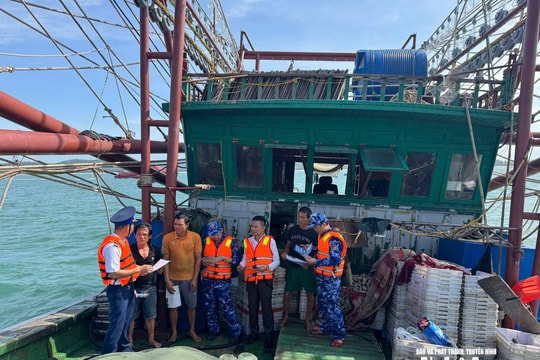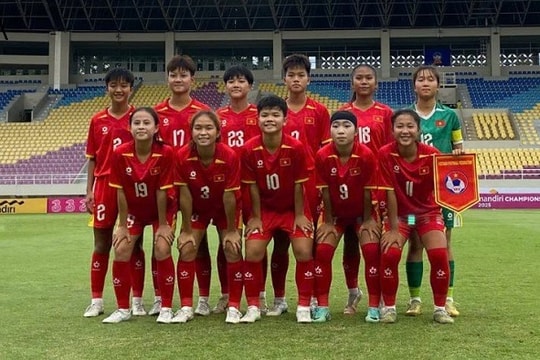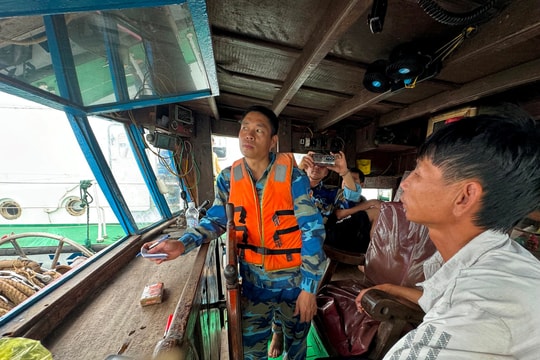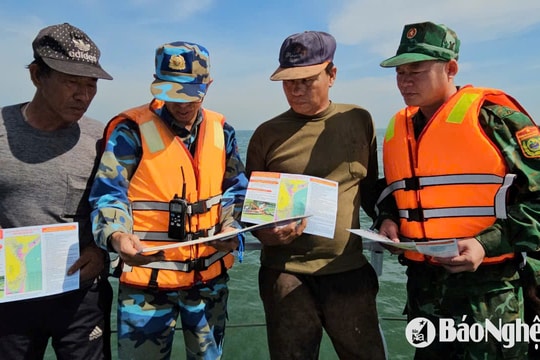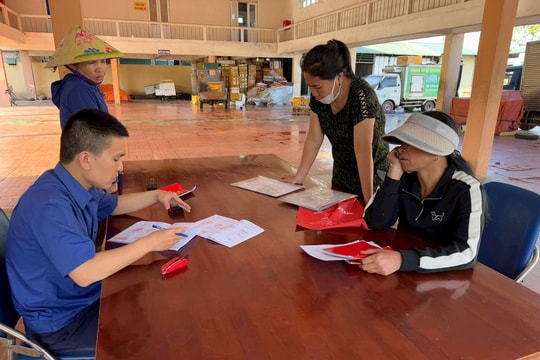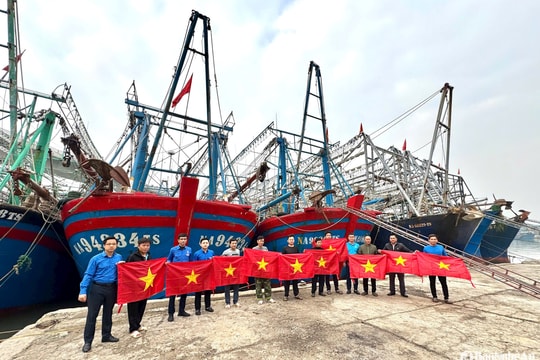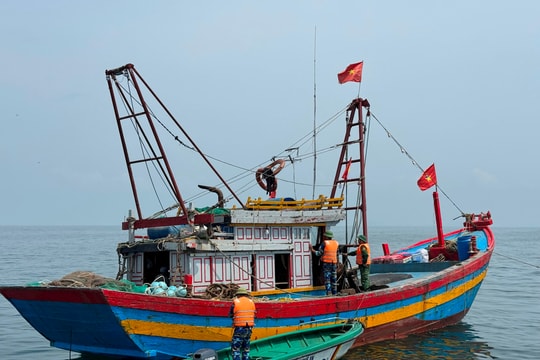Difficulties in removing the 'yellow card' on seafood in Nghe An
(Baonghean.vn) - Not removing the "yellow card" means that our country's seafood, including Nghe An, cannot fully access the international market, making the already difficult output for agricultural products even more difficult, making the goal of modernizing the fisheries sector and integrating more difficult.
From the predicted difficulties
Mr. Nguyen Chi Luong - Head of Nghe An Fisheries Sub-Department shared: After more than 30 years of working in the profession, the period from 2020 to now is a period full of difficulties and challenges for Nghe An fisheries in particular and our country in general. At the same time, the implementation of the provisions of the Fisheries Law requires fishing vessels to complete more procedures, such as for vessels with a maximum length of 15m or more, they must declare before going to work, and must notify the interdisciplinary working group 1 to 2 hours before entering the port... Fishermen have to invest in upgrading their means and adding equipment, but fishing is increasingly difficult and aquatic resources are increasingly declining.
The above situation makesfishingFalling into a vicious circle, due to ineffective fishing, it is difficult to invest in modernizing and upgrading the fleet for offshore fishing. Preliminary statistics show that, if in the period 2014 - 2018, within 4 years, the offshore fleet of over 400 CV nearly doubled, from about 700 ships to nearly 1,800 ships, from 2019 to now, the number of newly built ships has not increased, even gradually decreased. When switching to the convention of calculating by length, the number of ships is forced to convert again and currently the total number of offshore fishing ships with a length of over 15m is only nearly 1,200. According to the regulations of the Directorate of Fisheries, provinces that want to license new ships must gradually convert to small fleets.
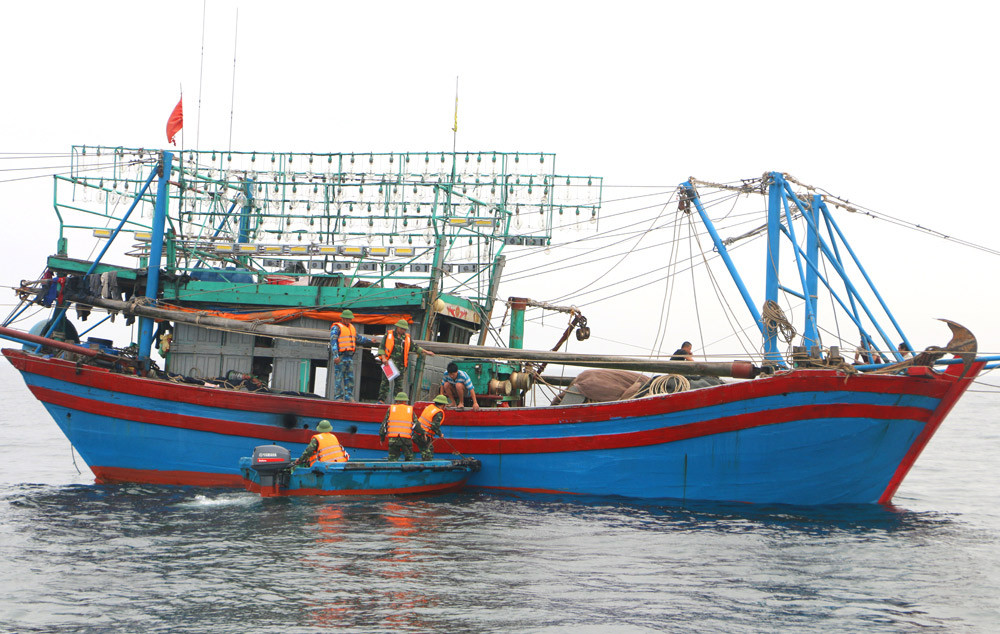 |
| Fisheries Surveillance force approaches fishing boat without license plate. Photo: NH |
Due to inefficient exploitation, the fishing industry cannot retain skilled workers, the fishing efficiency of each vessel has decreased significantly, the number of effective fishing vessels has decreased year by year. Due to lack of labor and many other reasons, the number of fishing vessels that do not go fishing has increased. In the past few years, although the province's seafood output has maintained a growth rate of 10 to 12% per year, in fact, the fishing efficiency has decreased compared to before if calculated based on the investment level of fishermen for each fishing vessel.
Specifically, when fishermen encountered difficulties in the procedures for inspection and issuance of fishing papers, switching from the unit of measurement in horsepower (CV) to the length of the vessel, the Department advised to establish an interdisciplinary team at the estuaries, coordinating with the Provincial Border Guard force to help people handle paperwork such as fishing logs, making a list of crew members; sending working groups to the communes to inspect the machinery of the vessels, reducing travel time for fishermen. When there was a policy to support fuel for fishing in distant waters to contribute to protecting the sovereignty of the sea and islands, the Department of Fisheries created maximum conditions to complete procedures for fishermen to go offshore. Thanks to that, the number of vessels of the province participating in going offshore to protect the sovereignty of the sea and islands increased from 99 to 400 per year.
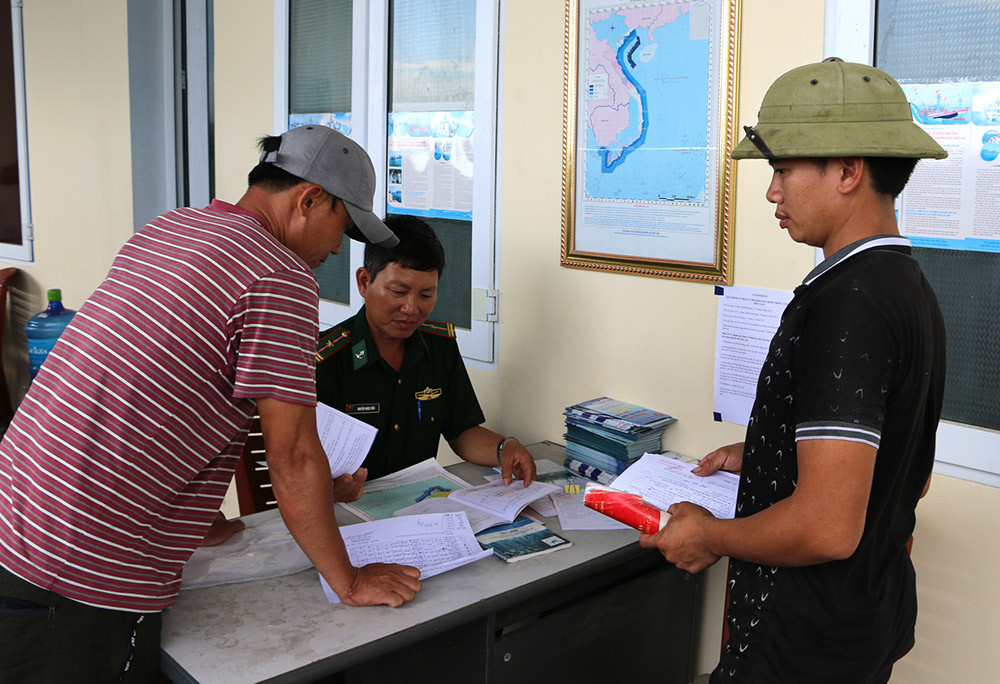 |
| Quynh Thuan Border Guard Station officers do departure procedures for fishermen from Quynh Long commune. Photo: NH |
Since May 2020, when the regulation on installing voyage monitoring equipment (abbreviated as VMS) on fishing vessels with a maximum length of 15m or more took effect, the Department advised the Department of Agriculture and Rural Development and the Provincial People's Committee to connect, thereby mobilizing nearly 500 VMS sets to install on vessels with a length of over 24m, before April 1, 2020.
Since May 1, 2020, when it was required for vessels 15m or longer to install VMS, causing difficulties for fishermen in completing procedures to go to sea, the Sub-Department and the Provincial Border Guard advised the Provincial People's Committee and the Provincial People's Council to pass Resolution 02 on one-time support of 50% of VMS equipment on vessels and 50% support for monthly VMS subscription maintenance fees. A total of 1,184 fishing vessels over 15m in length have been installed with VMS, reaching a rate of 95.61%; at the same time, continue to guide procedures to support monthly VMS maintenance costs for fishermen.
To new challenges arise
According to legal experts, the nature of the recommendation"yellow card"The European Union (EU)'s regulations on countries are aimed at limiting illegal fishing activities, contributing to the protection of ocean aquatic resources and sustainable development of fisheries. Therefore, the EU requires countries to legislate to strictly handle violations.
In addition, in the process of integration and modernizing our country's fisheries, the National Assembly issued the Fisheries Law in 2017, along with Government Decrees regulating licensing and administrative handling to manage exploitation and farming activities. Simply put, in the past, traditional fisheries, fishermen did not need any licenses or certificates to go to sea, but now, every time a ship goes to sea, the ship owner must prepare many regulations not only according to domestic regulations but also international regulations (if fishing in foreign waters); the products caught must be located, clearly stating the sea area and fishing coordinates to trace the origin...
However, due to the many shortcomings in the starting point and infrastructure of the fishing industry in our country in general and Nghe An in particular, the application and conversion is not easy. For example, in Dien Chau district, due to the lack of a deep enough estuary for large-capacity vessels to enter, for hundreds of years, fishermen in the coastal areas have been fishing inshore. In 2011, the whole district had nearly 1,000 vessels. By 2014, when Decree 67/CP and the province's incentive policies were issued, dozens of Dien Ngoc and Dien Bich fishermen had invested in larger vessels but they were still ineffective, and their old occupations were not supported.
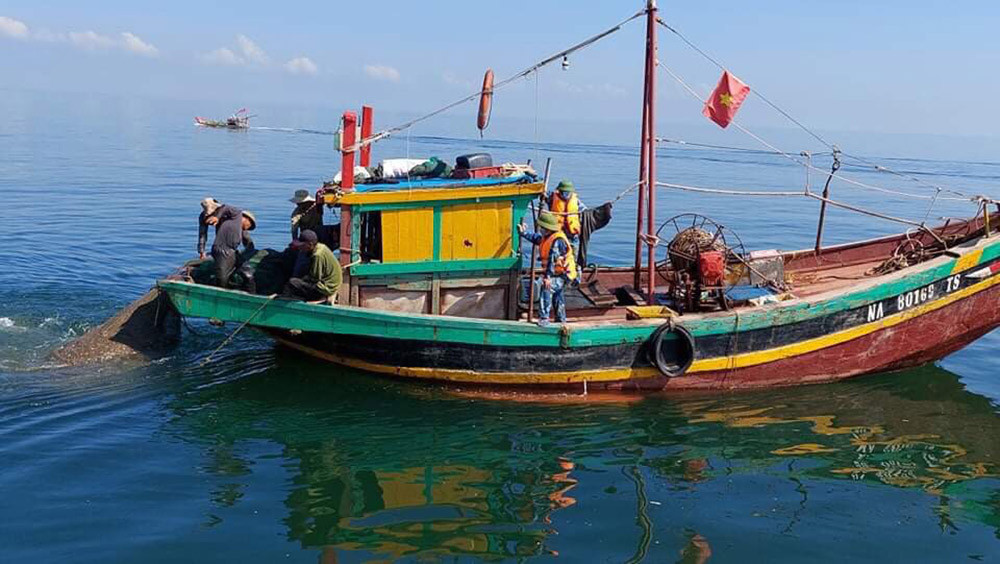 |
| Nghe An Fisheries Surveillance force approached fishing boats to propagate and check documents of coastal fishing boats. Photo: NH |
The representative of the Department of Agriculture and Rural Development of Dien Chau district admitted: The district is also impatient with the fact that fishing boats (dredgers) of fishermen are continuously being punished; regularly coordinates with the Department of Fisheries, Border Guard and Fisheries Control to propagate and train fishermen, but with a fleet of nearly 400 boats under 15m, along with the livelihoods of thousands of workers, the conversion is not easy.
In addition to the above difficulties, recently, when starting to monitor VMS devices, a new difficulty appeared: the rate of disconnected fishing vessels is increasing.
Specifically, from January 1, 2021 to October 30, 2021, after 1,132/1,184 fishing vessels were installed with VMS, through monitoring on the system, only 968 devices were regularly maintained, while 164 devices had their service stopped; among the maintained devices, 358 fishing vessels lost VMS connection for more than 10 days during operations at sea and 9 fishing vessels violated Chinese waters.
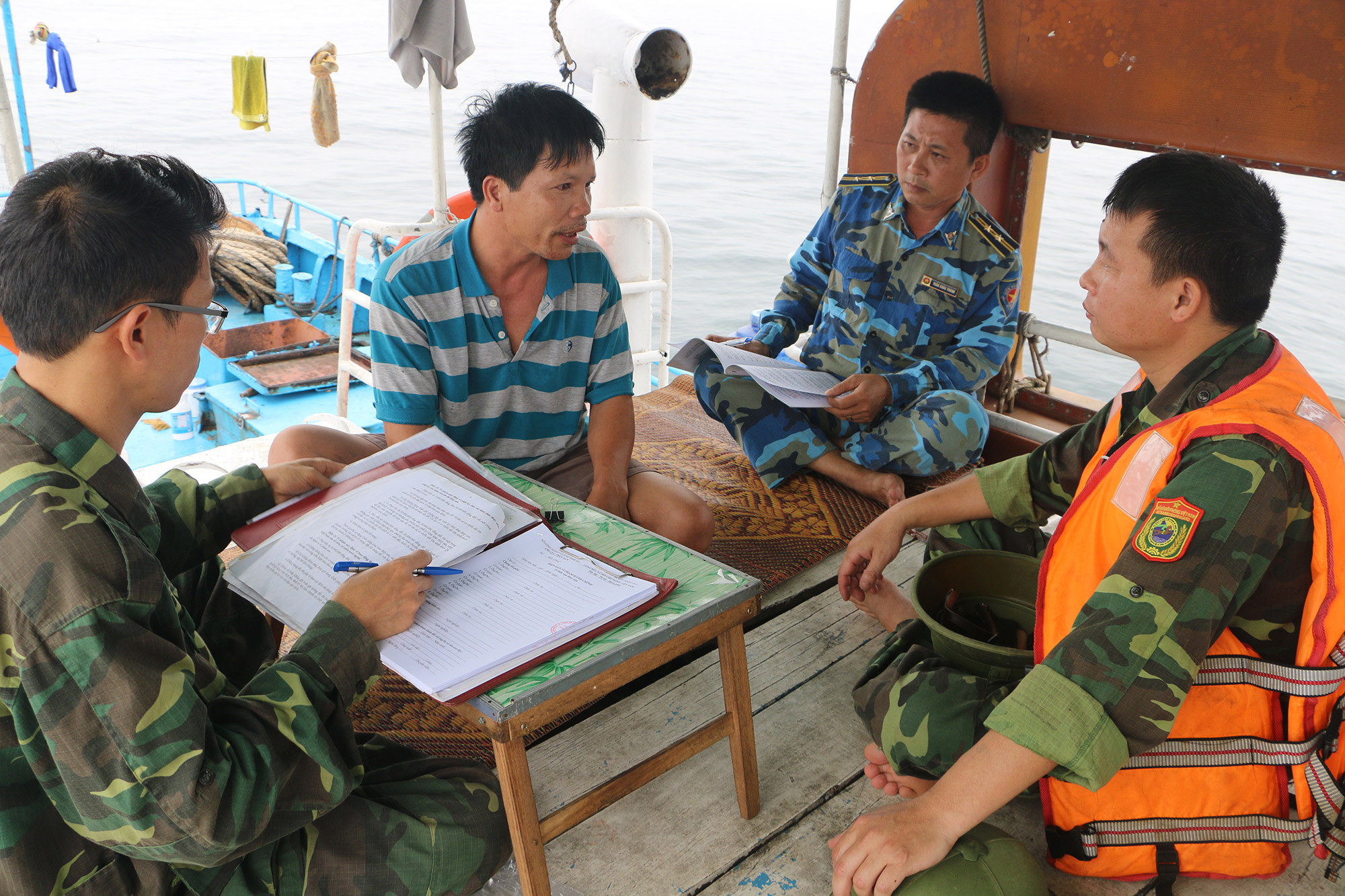 |
| The owner of a fishing boat in Dien Chau district was fined. Photo: NH |
The Department is developing a process for coordinating the processing of data on monitoring fishing vessels in Nghe An province that exploit aquatic products beyond the border with foreign waters and waters where exploitation is not allowed, and submitting it to the Department of Agriculture and Rural Development for promulgation. For vessels that have lost VMS connection for more than 10 days, the team has worked with localities and made a record; at the same time, it has issued a warning. The Provincial Border Guard Command has verified 9 fishing vessels that violated Chinese waters, worked with the vessel owners, localities and submitted them to the Provincial People's Committee for consideration.
Mr. Nhuệ added: As a member participating in recent coastal inspection trips, we have noticed that fishing violations are becoming more and more complicated and unpredictable. While the capacity and equipment of fishing boats are increasing, the operational equipment of the fisheries control force is quite outdated. Nghe An Fisheries Control currently has 2 iron ships that are over 20 years old, so in reality, only 1 can run, with a maximum speed of only 10 nautical miles/hour. Therefore, when detecting fisheries control ships, many fishing boats violate fishing gear and run away, making it difficult for fisheries control ships to chase. In addition, when Nghe An authorities conduct regular inspections, they also face challenges and dangers. Many times, the fisheries control force has faced danger because fishing boats of fishermen from other provinces violate fishing grounds but show signs of resistance. Only when there is the involvement of inter-sectoral forces, including the Border Guard, can they be arrested and handled.
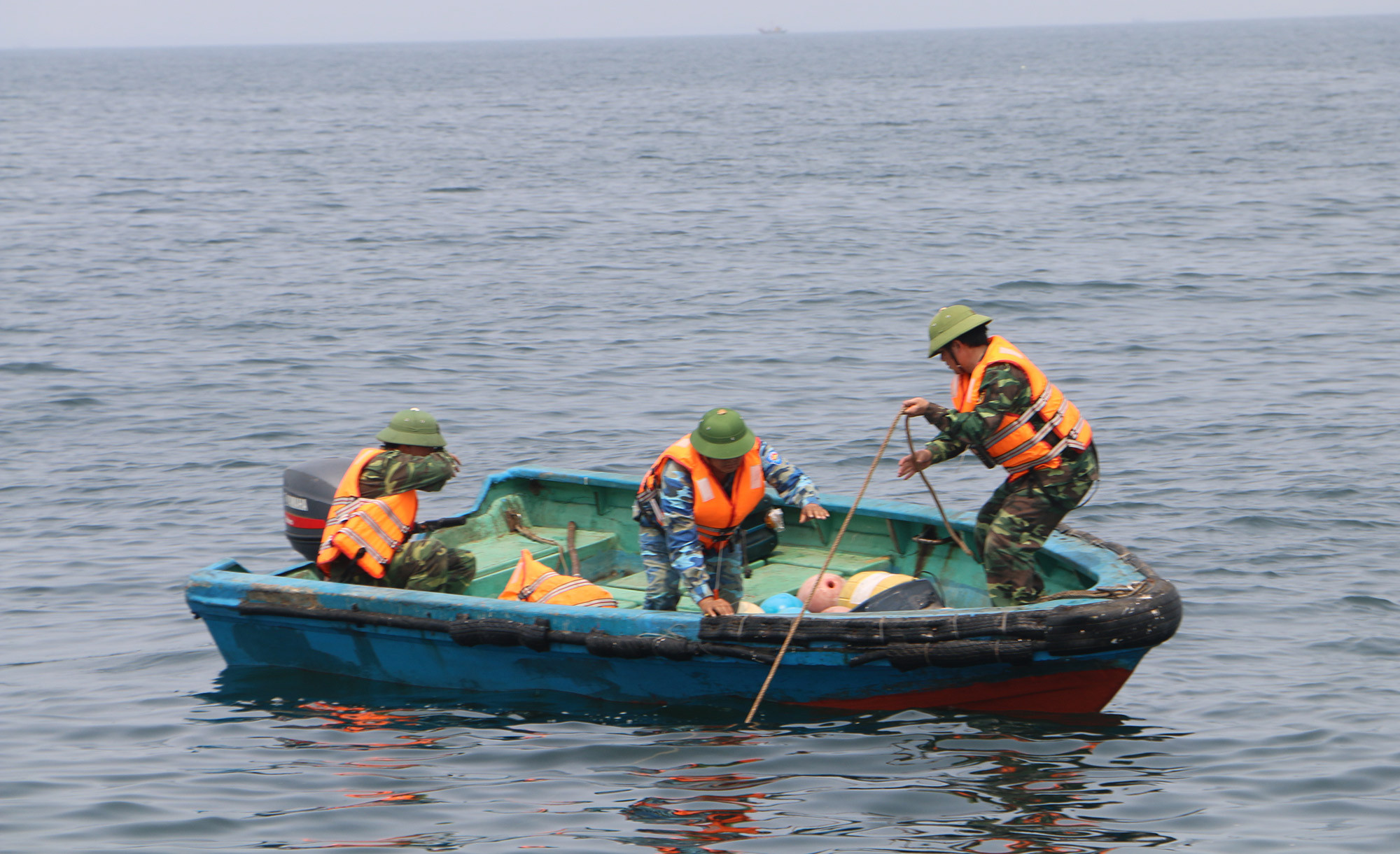 |
| Processing and cutting of abandoned buoys and fishing gear to return them to the marine environment. Photo: NH |
Nghe An has been highly appreciated by the Directorate of Fisheries and the Ministry of Agriculture and Rural Development in implementing the Fisheries Law as well as the Prime Minister's Directive on "removing the yellow card". Not only has the province seriously organized the review, inspection, licensing of boats and monitoring of going out to sea at the estuary, but it has also organized interdisciplinary teams to patrol and inspect the coast; inspect and urge the responsibilities of interdisciplinary working groups in guiding and licensing boats to go out to sea. Hopefully, when Nghe An Fisheries Surveillance receives the new control ship handed over by the Vietnam Fisheries Surveillance, patrolling and monitoring coastal fishing will be easier and more convenient.

